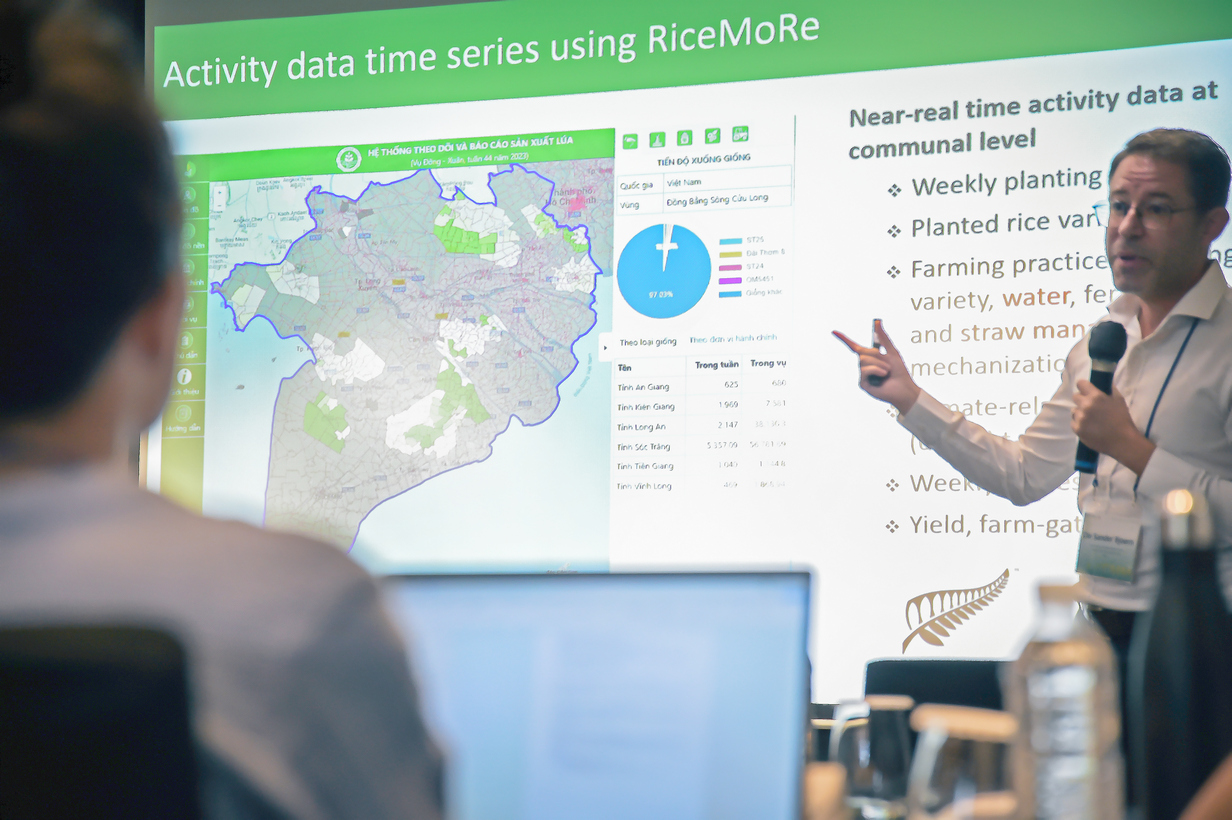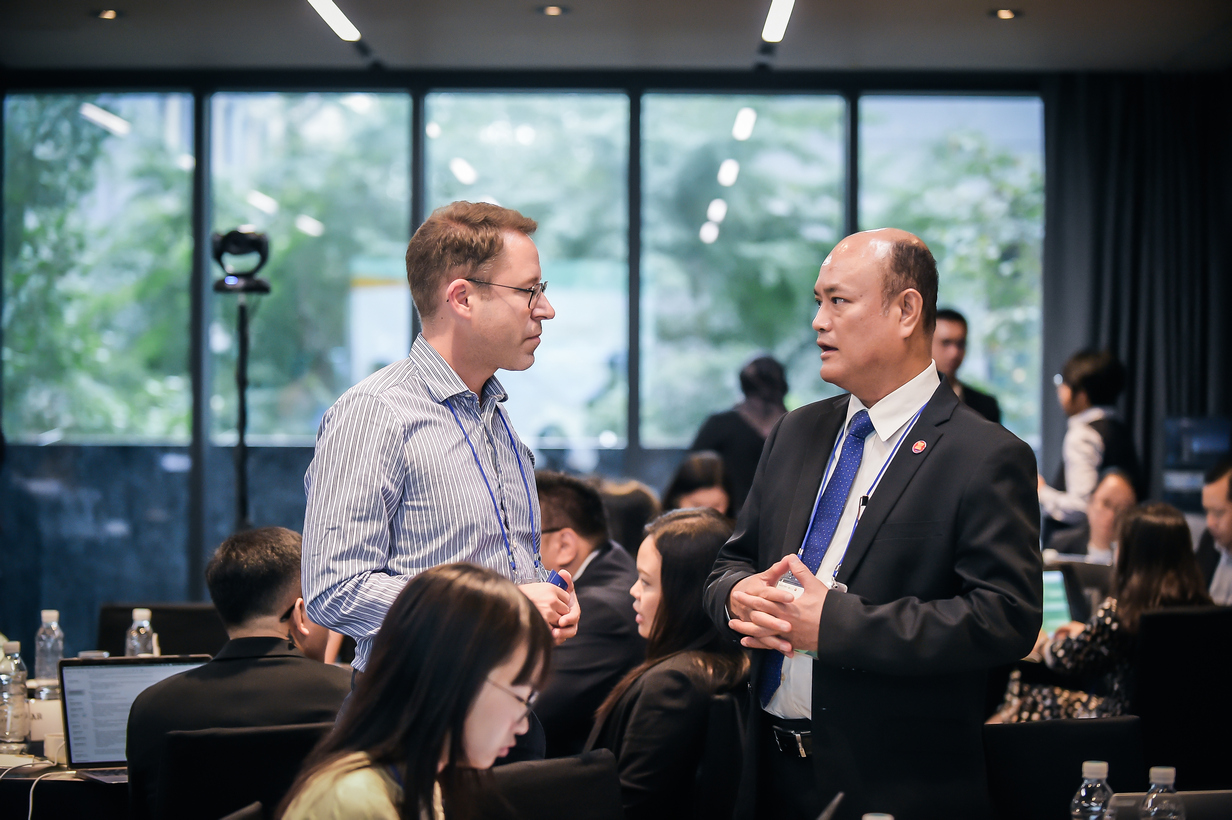Tags
IRRI contributes rice sector expertise to ASEAN-Korea methane mitigation workshop

Current methane estimation methods across ASEAN suffer from inadequate source coverage, datasets, and technical capacity. A coordinated regional approach is required for integrated strategies across agriculture, waste, and energy sectors to replace inconsistent national methodologies. With rice production being a major regional emission source, advanced measurement technologies, improved farming practices, and targeted policy interventions will define the road ahead.
Seoul, 24-26 September 2025—The International Rice Research Institute (IRRI) participated as a key technical expert in the ASEAN-Korea Cooperation for Methane Mitigation (AKCMM) Expert Workshop. The workshop, organized by the Global Green Growth Institute (GGGI), brought together government representatives from all ASEAN countries, leading researchers, and international organizations representing various sectors, such as agriculture, waste, energy, and livestock.
Launched in November 2024, the AKCMM program embodies a three-year emission reduction initiative, aiming to create a foundation for large-scale methane reduction across enabling policies and institutions, improving methane measurement, implementing reduction projects, and promoting regional dialogue.
The event tackled pressing issues in methane emissions estimation and developing coordinated mitigation strategies. Currently, inadequate methane emissions estimation methodologies, insufficient coverage of emission sources, reliance on outdated datasets, and shortcomings in technical capacity among member countries frame the picture in the ASEAN region.

IRRI’s participation, as represented by Dr. Bjoern Ole Sander, Senior Scientist for Climate Change, focused on sharing its expertise in methane measurement technologies specifically for rice agriculture.
A key highlight was the discussion on the tentatively entitled ASEAN Methane Reduction Roadmap: Assessment of Potential Pathways, one of the flagship outputs of AKCMM. The roadmap in development considers the current limitations in methane reduction practices, available options to improve emission measurements, and an agreement on priority action areas for collaboration.
IRRI’s participation alongside other international organizations including the Climate and Clean Air Coalition (CCAC) and Food and Agriculture Organization (FAO) and GGGI highlights the multi-sectoral approach that is needed for effective methane mitigation.

The collaboration between IRRI and the AKCMM program aligns with ongoing rice sector climate initiatives across the region, such as IRRI’s Accelerating scaling of Low-Emission Rice in Southeasts Asia (AcceLER). By contributing specialized knowledge on agricultural methane measurement and mitigation, IRRI supports the development of more accurate, country-specific approaches to emissions estimation—a critical foundation for effective climate policy and investment decisions.
https://www.irri.org/news-and-events/news/irri-contributes-rice-sector-expertise-asean-korea-methane-mitigation-workshopPublished Date: October 24, 2025






